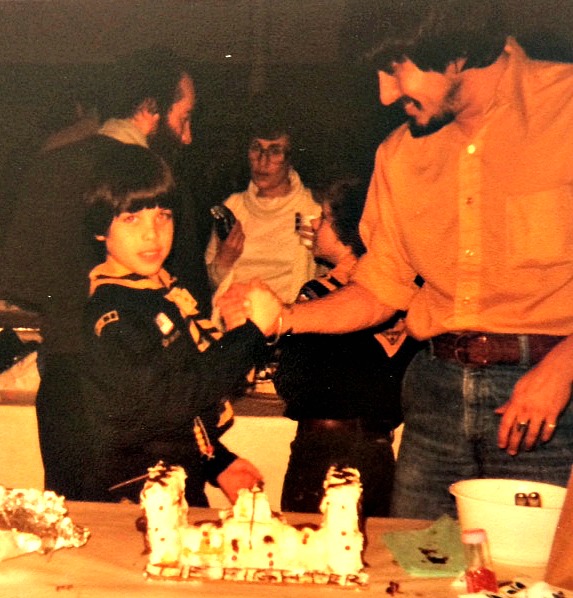From a young age, I was exposed to people working towards social justice and educational equity. My father was an advocate for bilingual education and worked in programs focused on providing educational opportunities for children of migrant workers and Chicano/Latino students. My mother was a Head Start and primary school teacher and was involved in the women’s movement. The people who visited our home and that we interacted with represented the many different cultures, ethnicities and racial groups that make up this country. My brother and I were taught from a young age to treat all people with the respect and dignity we expected ourselves.
My name is Steve Vigil. I’m originally from Colorado. My father is Chicano, and my mother is Sicilian and Scots-Irish. Both sides of my family have roots in Las Animas County in southern Colorado and in the coal mines that drove the economy over a century ago. My paternal grandfather was the first in his family to learn English and graduate from high school and attend college. Even though he never finished college, my grandfather had enough of an education to become a teacher and eventually a diplomat in the United States Foreign Service. He was one of the first Latino diplomats in the Foreign Service in the early 1940’s. He forged a path for his family out of the coal mines, where his father and relatives worked, and set the precedent that education was a path forward towards success.
Although my family was not unique in having used education to advance, we were part of a minority of Chicano/Latino families that had done so at the time. The reality for most Chicano/Latino students in Colorado when I was in school was quite different. Growing up in a small town as a “güero/hüero” who could “pass” for a white American, I had a unique view of the inequalities that my darker skinned peers faced in schools. The difference in the way I was treated by many of my teachers and administrators versus other Chicano/Latino (and my few African-American) classmates was painfully and noticeably obvious. Where at the lower grades many of us had similar grades and demonstrated comparable aptitude and skills, the expectations from teachers of Chicano/Latino and poor white students seemed to diminish as we advanced in our schooling.
Instead of nurturing all students equally it seemed that support for academic success was reserved for certain students. Due to my light skin, many teachers did not suspect that I was Latino. It was not uncommon for me to hear comments made by teachers and other community members about Chicano/Latino friends, classmates, and even family members. While these comments did not always directly disparage Chicano/Latino students because of their background, it was clear that there was a feeling, implicit or not, that Chicano/Latino students did not have the same capacity to learn and achieve as their white peers.
This was further amplified when I reached high school. I was often the only Chicano/Latino male in my grade in college prep courses and the Gifted and Talented Education programs and one of a handful to go on to college after graduation. This wasn’t because I was any smarter then the guys I grew up with. On the contrary, my family’s understanding of how to navigate the educational system and knowledge on how to advocate on behalf of their children made the difference for my brothers and me.
My parents, being educators themselves, knew the importance of being directly involved with our education. They got to know our teachers and got involved with the schools that we attended. They intervened on our behalf to ensure we were being taught to our full capacity. Not only were they involved with our education, they advocated for educational equity for all students. My father took it a step further and ran for school board. Upon winning, he became the second Chicano school board member elected in our district. Although still a struggle, this gave him a platform to ensure that the educational needs of Chicano/Latino students and families were being met.
The lessons from my parents and grandparents have been a blessing. I learned to not let others’ expectations, or lack thereof, determine your success and to be prepared to advocate for yourself and your community. These lessons have guided me and been the source of my passion for working with people and communities, whether my own or others. I look forward to sharing my experience and the experiences of others with La Comadre so that together we can continue to forge a better path forward for our youth and communities.
Steven Vigil
Mr. Vigil holds a BA from the University of California Santa Cruz and an MA in International Affairs from the School for International and Public Affairs at Columbia University.

